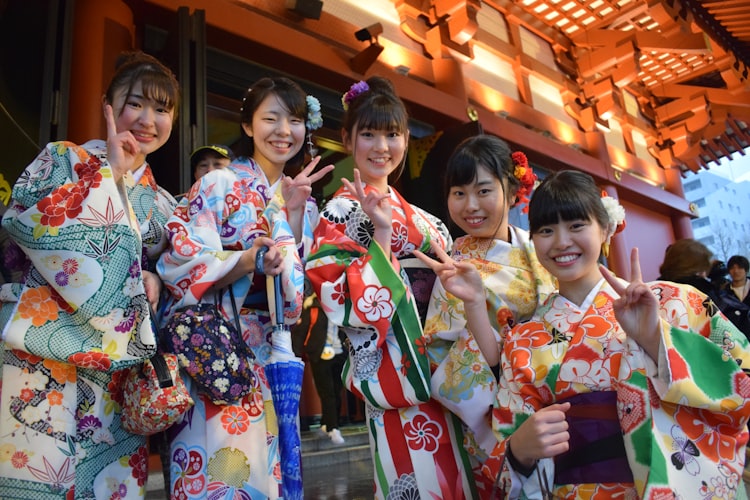Amazake: Fermented Japanese Drink
One of the contributing reasons to Japanese longevity
Amazake is a traditional drink in Japan. It is a very popular drink during New Year and Hina Matsuri (Doll Festival). It is recommended as a health drink. This is a fermented drink, made from Rice Koji and Sake lees. It is creamy in texture and mild sweet in taste. Amazake served as a chilled, hot, or warm. The catchy nickname of Amazake is an IV drip.
This fermented sweet sake is rich in nutrients consisting of Vitamin( B1, B2, B6, E ), Folic acid, Ferulic acid, Iron, Zinc, Potassium, Calcium, Manganese, Magnesium, Fiber, Glutamine, and Glucose.
Amazake has two versions,
- Non-Alcoholic Amazake
- Alcoholic Amazake
Non-Alcoholic Amazake made with koji rice means rice covered with koji mold i.e. Aspergillus oryzae and water. Aspergillus oryzae converts rice starch into sugars during the fermentation process.
The major source of sweetness is glucose that is derived from rice starch during saccharification by digestion of the enzyme of Aspergillus oryzae. This drink can be enjoyed by everyone including children and pregnant women.
Note: Saccharification efficiency depends upon the temperature, researchers observed that glucose content high at 50-degree Celsius and reduced at a temperature of 40- degrees celsius during the saccharification process.
Alcoholic Amazake is made with Sake lees, sugar, and water. In Sake lees, the yeast present known is Saccharomyces cerevisiae that helps to converts sugar to ethanol. This fermenting drink consists of 8% alcohol. This drink not enjoyable for children and pregnant women.
Amazake rice koji has more nutritional value than the sake less.
Health benefits of Amazake
- Increased body Metabolism
- Improved digestion process because the enzyme present in Amazake helps to break down fats, Macro carbohydrates, and proteins for the body to use.
- Strengthened Immune System
- Helps to recover and relive from Fatigue
- Improved skin and hair beauty
- Helps to promote antiaging factor
- Helps to eliminate toxins such as Polyvinyl chloride.
Some Health Beneficial aspects of Amazake according to researchers
Amazake prepared from Brown Rice Has a High Radical scavenging capacity
Research show, Vitamin E determined in the Amazake act as a liposoluble antioxidant. There are six Vitamin E species detected in Brown Rice Amazake ( BRA). Experimental observation shows that the composition of Vitamin E is changed during the fermentation process. vitamin E level in brown rice powder decreased during pre saccharification, almost constant through saccharification, and remain high in the final BRA product. The overall result shows that BRA consisting of high radical scavenging capacity which corresponding with the total level of vitamin E and Ferulic Acid ( FA).
Amazake improved Skin, hair, and eye beauty
Amazake made by rice koji or sake cake, these two helps to suppressed intracellular accumulation in differentiated hamster sebocytes by reducing the expression of peroxisome proliferator-activated receptor-gamma ( PPARy) mRNA .which helps to improve the face color, glossy hair and improve dark circle under the eyes by decreasing the sebum content in cells.
Amazake one of the Secret of Japanese Longevity
Amazake considered being responsible for increased longevity among the Japanese. This super drink is fermented with koji i.e. Aspergillus oryzae contain an abundant amount of glycosylceramide and function as a prebiotic for Blautia coccoides that have a significant effect on health, an increase in B.coccoides by koji glycosylceramide that might be a connection with Japanese longevity.
Amazake consisting gut — health-boosting probiotics and metabolism-boosting digestive enzymes that act as a super drink to boost up the immune system.
References
Hiroko Maruki-Uchida, et al, “Amazake made from sake cake and rice koji suppresses sebum content in differentiated hamster sebocytes and improves skin properties in humans.”Biosci Biotechnol Biochem. 2020 Aug ;84(8):1689–1695.doi:10.1080/09168451.2020.1756734.Epub 2020 Apr 21.
Hiroshi Hamajima, Haruka Matsunaga, et al, “ Japanese traditional dietary fungus koji Aspergillus oryzae function as a prebiotic for Blautia coccoides through glycosylceramide: Japanese dietary fungus koji is a new prebiotic.” Spingerplus .2016;5(1):1321.Published online 2016 Aug 11.doi:10.1186/s40064–016–2950–6. PMCID:PMC4980852, PMID:27563516
Misaki Akaike et al ., “ Chemical and Bacterial Components in Sake and Sake production Process”.Curr Microbiol.2020 Apr;77(4):632–637.doi:10.1007/s00284–019–01718–4.Epub 2019 Jun 27.
Naoki Wada, Toshio Sakamoto, and Seiichi Matsugo, “Liposoluble Antioxidative Components in Japanese Traditional Fermented Food “ Amazake” Made From Brown Rice.” School of Natural System, College of Science and Engineering, Kanazawa University, Kakuma, Kanazawa, Japan.Wada et al ..J Bioprocess Biotech 2018.8:1, DOI: 10.4172/2155–9821.1000317.
Yoshifumi Oguro et al ., “Effect of temperature on Saccharification and oligosaccharide production efficiency in koji Amazake”.J Biosci Bioeng .2019 May;127(5):570–574.doi:10.1016/j.jbiosc.2018.10.007.Epub 2018 Nov 7.
Image Reference:
https://images.unsplash.com/photo-1553432172-f37667f5ed15?ixid=MXwxMjA3fDB8MHxwaG90by1wYWdlfHx8fGVufDB8fHw%3D&ixlib=rb-1.2.1&auto=format&fit=crop&w=750&q=80

Comments
Post a Comment
Please do not enter any spam link in the comment box.